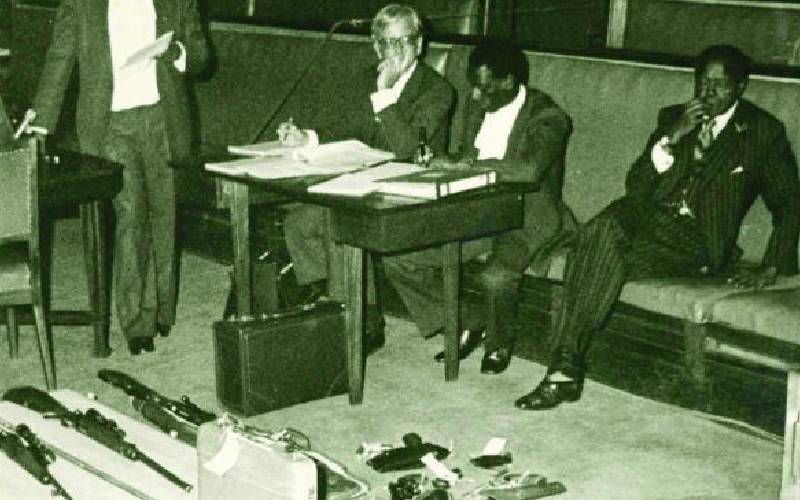×
The Standard e-Paper
Home To Bold Columnists

The commission chaired by Justice Cecil Miller, Justice Chuuilat Madan and Justice Mrs Effie Owuor, was Gazetted in 1983. [File, Standard]
It took 107 days and 62 witnesses to clip the wings of powerful Cabinet Minister Charles Njonjo, who believed that he was destined to occupy State House some day, and that the occupant then was “just a passing cloud”.